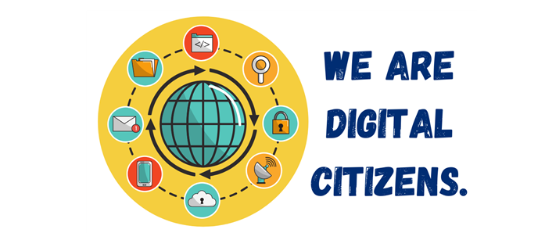In today’s digital age, children are growing up surrounded by technology, with access to the vast resources of the internet at their fingertips. While the online world offers endless opportunities for learning, creativity, and connection, it also presents unique challenges and risks. As caregivers and educators, it’s essential to equip children with the knowledge and skills to navigate the digital landscape responsibly. In this article, we delve into the concept of digital citizenship and explore strategies for nurturing responsible online behavior in children.
Understanding Digital Citizenship: Digital citizenship refers to the responsible, ethical, and safe use of technology, encompassing a range of behaviors and attitudes that contribute to a positive digital community. Just as we teach children manners, respect, and kindness in the physical world, digital citizenship emphasizes the importance of practicing these values in online interactions. From respecting others’ privacy and intellectual property to using technology to make a positive impact, digital citizenship empowers children to become responsible digital citizens.
Building Digital Literacy Skills: Central to fostering digital citizenship is the development of digital literacy skills, which enable children to critically evaluate and effectively navigate digital content and communication. Through age-appropriate activities and discussions, caregivers and educators can help children develop skills such as media literacy, information literacy, and online communication skills. By teaching children how to discern credible sources, identify misinformation, and communicate respectfully online, we empower them to engage with the digital world in a safe and informed manner.
Promoting Online Safety and Security: Ensuring children’s online safety and security is paramount in nurturing digital citizenship. Caregivers and educators can educate children about the importance of safeguarding personal information, using strong passwords, and recognizing and avoiding online risks such as cyberbullying, phishing, and inappropriate content. By establishing clear guidelines and boundaries for online behavior and encouraging open communication, we create a supportive environment where children feel empowered to seek help if they encounter challenges online.
Fostering Empathy and Respect: At the heart of digital citizenship lies empathy and respect for others in the online community. Caregivers and educators can teach children the golden rule of treating others online as they would like to be treated, fostering empathy, kindness, and inclusivity in their online interactions. By modeling positive digital behavior and addressing instances of cyberbullying or online harassment promptly and effectively, we cultivate a culture of respect and empathy in the digital sphere.
As children navigate the complexities of the digital world, nurturing digital citizenship is essential for their well-being, safety, and success. By promoting digital literacy, online safety, and empathy, caregivers and educators can empower children to become responsible digital citizens who contribute positively to the digital community. Together, let’s guide children on their journey towards becoming thoughtful, ethical, and empowered users of technology.





